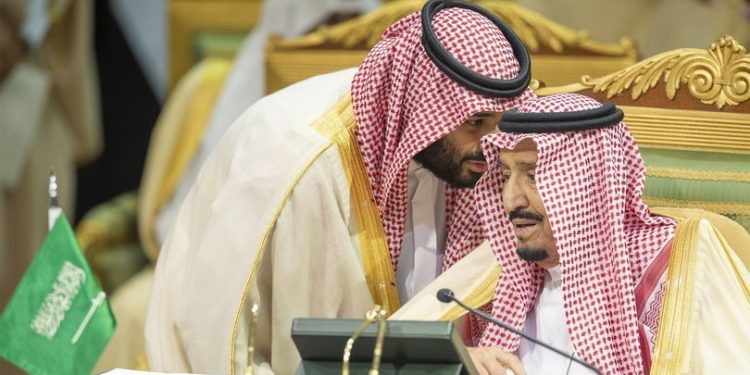
The ouster of energy minister Khalid al-Falih is a sign of the turmoil surrounding Mohammed bin Salman’s initiative to transform the economy and make it less dependent on oil, the Wall Street Journal reported.
The plan was halted because Bin Salman was busy cracking down on a potential challenge to his authority, complicating efforts to attract foreign investment.
Al-Falih relieved of his post as energy minister, less than a week after he was fired as head of the state-owned oil giant, a sudden turnaround as plans for an initial public offering accelerated.
Al-Falih was replaced by Prince Abdul Aziz bin Salman, son of King Salman, according to a royal decree published in the official news agency.
Al-Faleh’s departure from the government represents the loss of one of the kingdom’s most famous public figures, familiar to foreign investors and governments, and a half-brother to bin Salman, who has had central authority within the state since becoming heir to the throne in 2003. 2017.
This is the first time that the kingdom has placed an official in charge of the Ministry of Energy from the royal family, contravening the tradition of placing non-family members of the Ministry of Finance and Oil.
Information from within the oil sector in the kingdom revealed a surprise behind the appointment of Abdul Aziz bin Salman as energy minister.
The information reported by Saudi accounts on the site “Twitter”, that the decision to choose Abdul Aziz bin Salman, Minister of Energy, due to Crown Prince Mohammed bin Salman, and his plan on the oil sector.
Mohammed bin Salman chose his brother in order to complete the sale of the company, “Aramco”, without any objections or fears such as put forward by former Minister Khalid al-Falih, Saudi accounts on twitter said.
The same sources did not rule out that the reason for the introduction of “Aramco” in the market, “Tadawul” Saudi Arabia – according to the US Bloomberg -, in order to privatize the company in favor of Mohammed bin Salman and a number of princes of the Al Saud family.
Mohammed bin Salman’s plan to sell Aramco from New York in the United States to Tokyo in Japan and then to Tadawul in the kingdom changed.
Press sources reported that Al-Falih was a key ally of Mohammed bin Salman, who helped him guide the kingdom’s economy, but opposed the sale of Aramco despite his public support for the plan.
In 2017, the Saudi authorities arrested dozens of Saudi businessmen and elites at the Ritz-Carlton in Riyadh in what the government said was a crackdown on corruption.
In 2018, a team from the Saudi government killed journalist Jamal Khashoggi inside the Saudi consulate in Istanbul. This and other incidents caused some foreign companies to stay away.